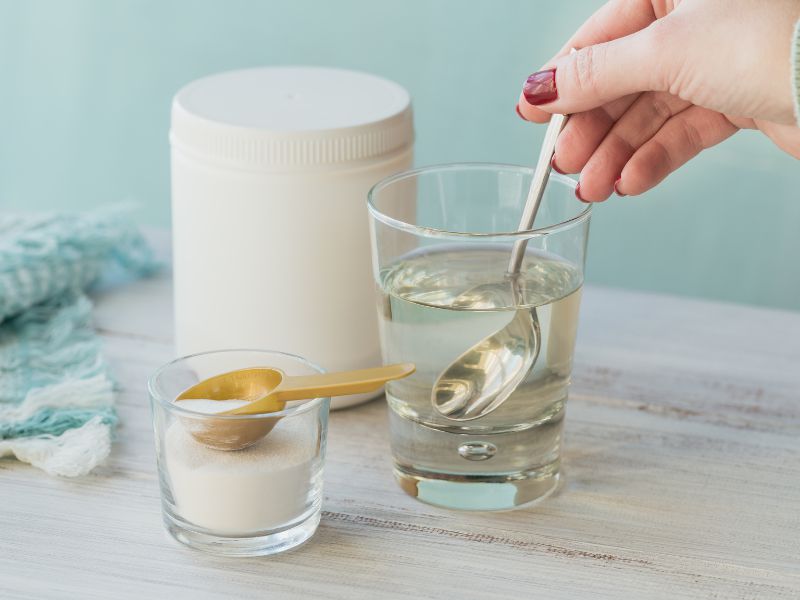
In the quest for beauty and wellness, biotin and collagen stand out as two of the most celebrated supplements, each championing unique benefits for hair, skin, nails, and overall health. While both have become staples in the health and beauty industries, understanding their distinct roles and benefits can help you make an informed decision on which is best suited for your personal health goals.
What is Biotin?
Biotin, also known as vitamin B7, is a water-soluble vitamin that plays a pivotal role in the metabolism of fats, carbohydrates, and proteins. It’s a coenzyme essential for the synthesis of fatty acids, amino acids, and glucose. Biotin is widely recognized for its benefits to hair health, promoting growth, strength, and shine. It also supports nail thickness and firmness, reducing brittleness.
What is Collagen?
Collagen, on the other hand, is the most abundant protein in the human body, acting as the main component of connective tissues. It provides structure to the skin, bones, tendons, and ligaments. As we age, our body’s natural production of collagen decreases, leading to common signs of aging such as wrinkles, sagging skin, and joint pains. Supplementing with collagen can help improve skin elasticity, hydration, and the overall appearance, along with supporting joint and bone health.
Biotin vs. Collagen: The Differences
1. Primary Benefits:
- Biotin primarily supports the health of hair, skin, and nails by improving the infrastructure of keratin, the protein that makes up hair, skin, and nails.
- Collagen focuses on enhancing skin elasticity, reducing wrinkles, and supporting joint and bone health, due to its role as a building block of connective tissues.
2. Sources:
- Biotin can be found in foods like eggs, almonds, spinach, and sweet potatoes. It’s also available in supplement form.
- Collagen is sourced from animal connective tissues; common supplements are derived from bovine, marine, or chicken sources. It’s also present in bone broth and certain cuts of meat.
3. Absorption and Use:
- Biotin is absorbed through the digestive system and requires regular intake as it’s water-soluble and not stored by the body.
- Collagen supplements, particularly hydrolyzed collagen, are easily absorbed and can be taken daily to support the body’s needs.
Can You Take Biotin and Collagen Together?
Yes, taking biotin and collagen together is not only safe but can be complementary. Since they support different aspects of health and beauty, using them in tandem can enhance overall benefits. For instance, while biotin can improve hair strength and nail firmness, collagen can boost skin hydration and elasticity, offering a comprehensive approach to beauty and wellness.
Conclusion
Choosing between biotin and collagen depends on your specific health and beauty goals. If your primary concern is enhancing hair, skin, and nail health, biotin may be the supplement of choice. However, if you’re looking to improve skin elasticity, reduce aging signs, and support joint and bone health, collagen might be more beneficial.
Ultimately, incorporating both supplements into your routine can provide a holistic approach to beauty and wellness, covering all bases from strong, shiny hair and firm nails to supple, youthful skin and healthy joints. As with any supplement, consult with a healthcare provider to ensure they fit your health profile and dietary needs.


